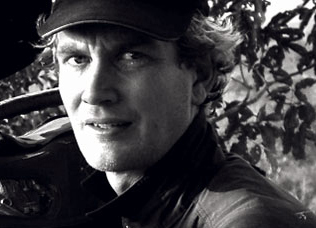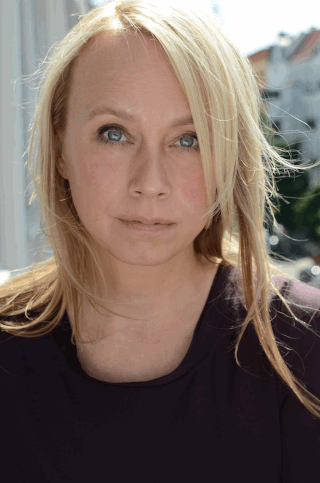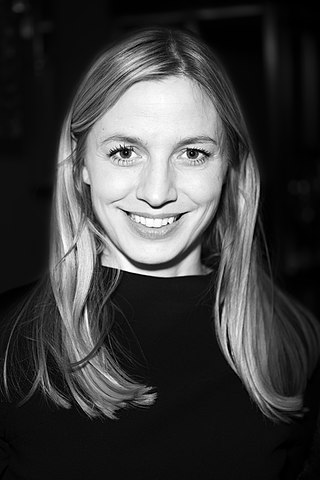Related Research Articles
Südwestrundfunk, shortened to SWR, is a regional public broadcasting corporation serving the southwest of Germany, specifically the federal states of Baden-Württemberg and Rhineland-Palatinate. The corporation has main offices in three cities: Stuttgart, Baden-Baden and Mainz, with the director's office being in Stuttgart. It is a part of the ARD consortium.

Rundfunk Berlin-Brandenburg, commonly shortened to RBB, is an institution under public law for the German states of Berlin and Brandenburg, based in Berlin and Potsdam. RBB was established on 1 May 2003 through the merger of Sender Freies Berlin (SFB) and Ostdeutscher Rundfunk Brandenburg (ORB), based in Potsdam, and is a member of the Association of PSBs in the Federal Republic of Germany (ARD).

Ostdeutscher Rundfunk Brandenburg, based in Potsdam, was the public broadcaster for the German federal state of Brandenburg from 12 October 1991 until 30 April 2003. It was a member organization of the consortium of public-law broadcasting organizations in Germany, ARD.

Wolfgang Lippert is a German entertainer, singer, and actor. He was one of the most popular entertainers of the GDR. After working as an auto mechanic and photographer, he came into the show business as a TV show host and singer.

Andrei Lvovich Nekrasov is a Russian film and TV director from Saint Petersburg.

Helmut Krauss was a German voiceover artist, Audiobook-Narrator, Radio drama-actor, Actor and kabarett artist. One of his best known roles was that of neighbor Paschulke in the ZDF series Löwenzahn between 1981 and 2019.

Julian Rosefeldt is a German artist and film-maker. Rosefeldt's work consists primarily of elaborate, visually opulent film and video installations, often shown as panoramic multi-channel projections. His installations range in style from documentary to theatrical narrative.
Bayerischer Fernsehpreis is an award presented by the government of Bavaria, Germany since 1989. The prize symbol is the "Blue Panther", a figure from the Nymphenburg Porcelain Manufactory. The prize money is €10,000.
Christoph Dreher is a German filmmaker, musician and scriptwriter. From 2000 until 2020, he was a professor of audiovisual media.

Christian Baumeister is a German cinematographer and award-winning director focusing on nature and wildlife productions.

Miriam Dehne , is a German film director and screenwriter.

Honey is a 2010 Turkish drama film directed by Semih Kaplanoğlu, the third and final installment of the "Yusuf Trilogy", which includes Egg and Milk. It premiered on 16 February 2010 in competition at the 60th Berlin International Film Festival, where it became the third Turkish film, after Susuz Yaz in 1964 and Head-On in 2004, to win the Golden Bear award. The film, which went on general release across Turkey on 9 April 2010, was selected as Turkey's official candidate for the Best Foreign Film Oscar at the 83rd Academy Awards but it did not make the final shortlist.
KDD – Berlin Crime Squad, German title KDD – Kriminaldauerdienst is a German television series that was broadcast from 2007 to 2010. The series differs from typical police procedurals by focusing on the daily work life and the private problems of the main characters instead of following a "case of the week" scheme, and because of the overarching storylines spanning one or several seasons. Due to its uncommon dramaturgy and its ambiguous drawing of the main characters, it was critically lauded and received several accolades. However, as the limited number of viewers underperformed expectations, the series was cancelled after three seasons.

Maren Niemeyer is a German journalist, documentary filmmaker and cultural manager
The Axel-Springer-Preis is an annually awarded prize. The Award is given to young journalists in the categories print, TV, radio, and online journalism due to the decisions of the Axel-Springer-Akademie.
Thomas Imbach is an independent filmmaker based in Zürich, Switzerland. With his production company Bachim Films, Imbach produced his own work until 2007. He then founded Okofilm Productions with director/producer Andrea Staka. All of his films have been theatrically released and Imbach has won numerous awards for his work, both in Switzerland and abroad. With Well Done (1994) and Ghetto (1997) Imbach established his trademark audio-visual style, which is based on a combination of cinema- verité camerawork and fast-paced editing. His fiction features Happiness is a Warm Gun, as well as Lenz (2006), I Was a Swiss Banker (2007) and the fictive autobiography Day is Done (2011) all premiered at the Berlinale. His latest feature film Mary Queen of Scots celebrated its premiere in Locarno and at the Toronto International Film Festival in 2013. His latest documentary Nemesis celebrated its international premiere at International Documentary Film Festival Amsterdam 2020, where it received the Prize for Best Cinematography. Thomas Imbach is currently considered one of the most unconventional and consistent Swiss filmmakers.

Norbert Busè is a German documentary filmmaker, film producer, and director.

Anne-Kathrin Peitz is a German documentary screenwriter, director and producer. She primarily works on classical music-related documentaries and television specials.
Thelma Buabeng is a German actress.

Annika Greta Blendl is a German actress, film director, and film producer.